100 days of new powers for the Ministry for Development: ZMINA joined the discussion on support policies for IDPs and TOT
On April 28, 2025, a briefing was held on the topic: “100 days of new powers for the Ministry for Development: internally displaced persons and temporarily occupied territories”. The event was organised by the Ministry for Development of Communities and Territories of Ukraine in cooperation with Ukrinform.
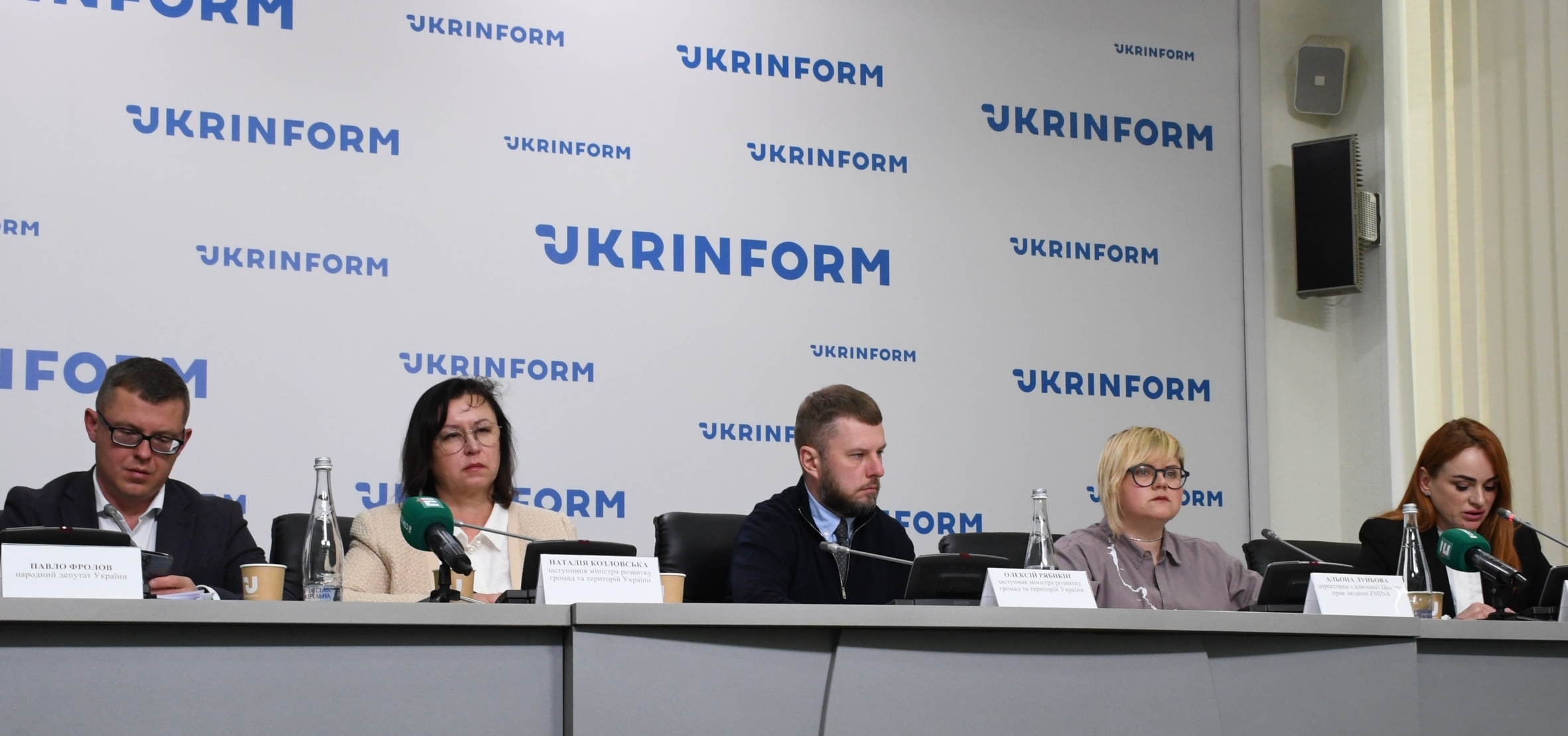 Pavlo Frolov, Nataliia Kozlovska, Oleksii Riabykin, Alena Lunova, Kseniia Hedz
Pavlo Frolov, Nataliia Kozlovska, Oleksii Riabykin, Alena Lunova, Kseniia HedzThe briefing was attended by Pavlo Frolov, Member of Parliament of Ukraine; Oleksii Riabykin, Deputy Minister for Development of Communities and Territories of Ukraine; Nataliia Kozlovska, Deputy Minister for Development of Communities and Territories of Ukraine; Alena Lunova, Advocacy Director of the Human Rights Centre ZMINA; and Kseniia Hedz, Advocacy Coordinator of the CF Right to Protection.
During the event, the key results of the work of the Ministry for Development of Communities and Territories of Ukraine were presented after receiving new functional powers in the areas of support for internally displaced persons (IDPs) and work with temporarily occupied territories (TOT).
Deputy Minister for Development of Communities and Territories of Ukraine Oleksii Riabykin , starting the briefing, noted that one of the main tasks of the department is to strengthen interdepartmental cooperation within the new competence of the ministry to respond more effectively to the needs of the population affected by the war.
He reported that since 2014, nearly 19% of Ukraine’s territory has been temporarily occupied, leading to the displacement of more than 2.8 million people to government-controlled areas. At the same time, according to the government official, there is currently a discrepancy in the data on the number of internally displaced persons in Ukraine. According to the registers of the Ministry of Social Policy, there are 4.6 million IDPs, while according to the International Organisation for Migration, there are 3.5 million.
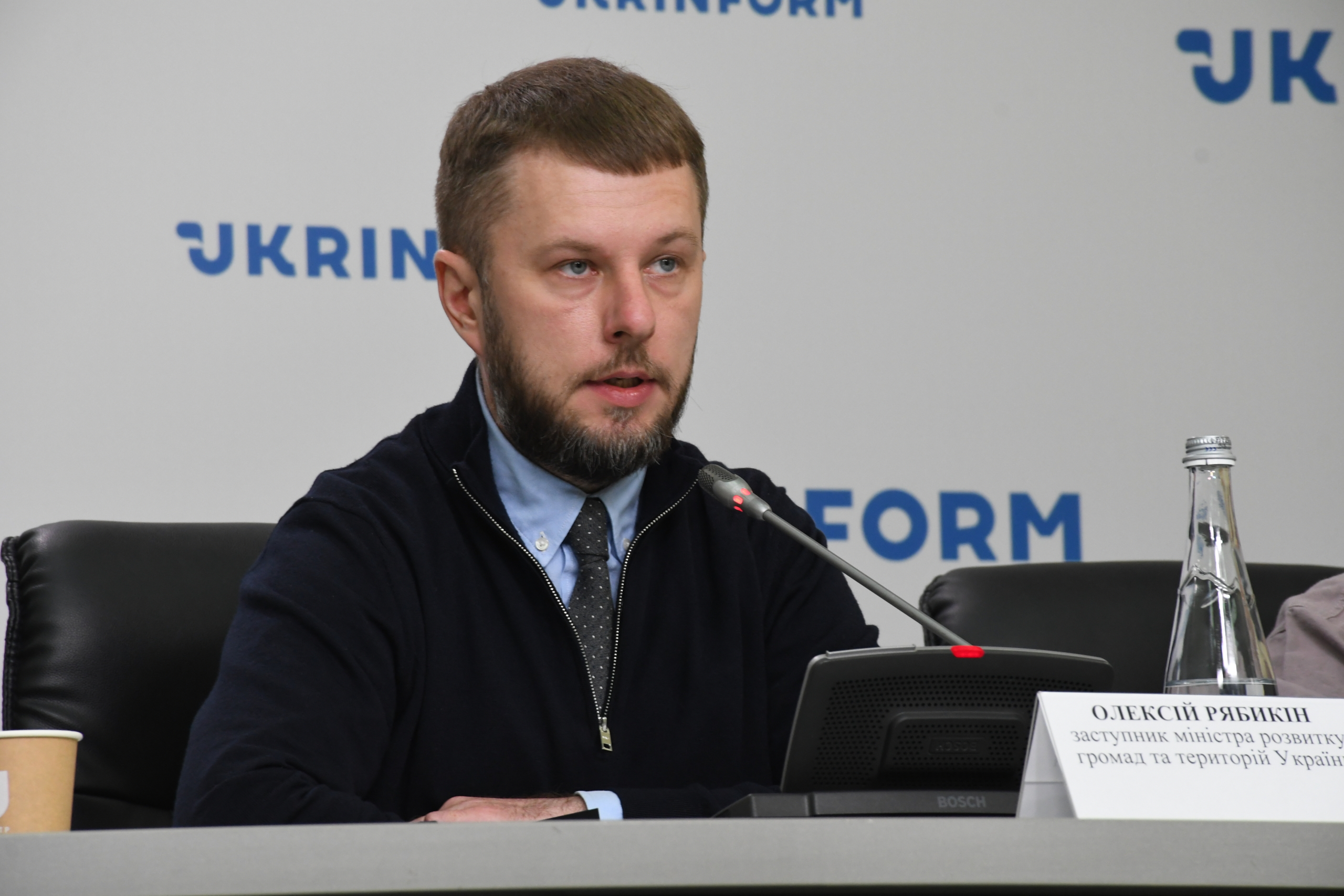 Oleksii Riabykin
Oleksii Riabykin“Therefore, the priority of the agency is currently to establish the exact number of displaced persons from the occupied territories and determine their needs in terms of housing, social integration and other areas. That is why the Ministry for Development, together with the Ministry of Social Policy and the Ministry of Digital Transformation, is working to update the IDP registers in order to develop effective state policy based on reliable data,” said Oleksii Riabykin, adding that the Ministry for Development of Communities and Territories of Ukraine is developing a new comprehensive programme called “eLife”, aimed at addressing the problems of internally displaced persons and the reintegration of temporarily occupied territories, including housing issues, access to education, social and medical services, as well as creating opportunities for IDPs to engage in entrepreneurial activities in their new place of residence.
Nataliia Kozlovska, Deputy Minister for Development of Communities and Territories of Ukraine provided more details on legislative initiatives aimed at protecting the rights of IDPs. She emphasised that resolving housing issues remains one of the priorities of the Ministry for Development. According to Nataliia Kozlovska, the ministry is actively working on reforming housing legislation, in particular on the adoption of a framework law “On the Basic Principles of Housing Policy”, which is to replace the outdated and ineffective Housing Code. Numerous support programmes are also being implemented: “eRestoration” to compensate for damaged and destroyed housing, preferential lending programmes, and the development of municipal rental housing.
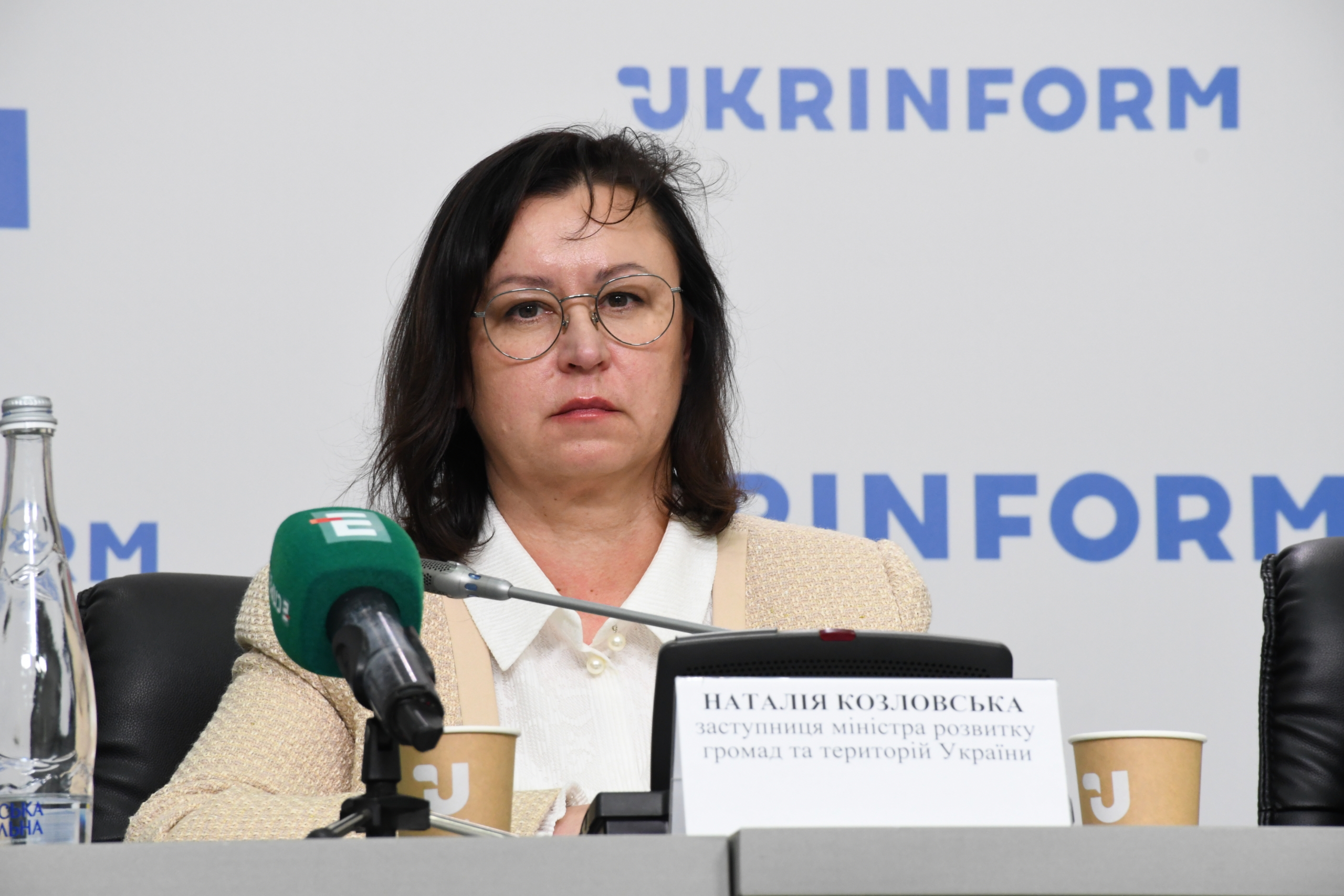 Nataliia Kozlovska
Nataliia Kozlovska“According to our estimates, approximately 1.3 million internally displaced families are in need of housing. We are working to meet this need through various instruments: compensation, preferential mortgage loans, rent subsidies, and the construction of municipal and social housing. The adoption of relevant legislative changes will enable a systematic solution to the problem of housing for internally displaced persons,” emphasised Nataliia Kozlovska, adding that in 2025, the Ministry for Development plans to launch a pilot project to create a municipal rental housing fund for IDPs in 15 local communities.
MP Pavlo Frolov assured that the Verkhovna Rada of Ukraine is ready to adopt legislative initiatives to support people affected by the war, improve the situation of internally displaced persons, and de-occupy temporarily occupied territories.
“We are focusing our efforts on parliamentary control, in particular on solving the housing problem for IDPs. A law has been adopted on the inventory of properties that can be used for housing displaced persons. We expect that this inventory will be launched in the near future and people will be able to see the available properties, their technical condition and submit applications for accommodation,” said Pavlo Frolov.
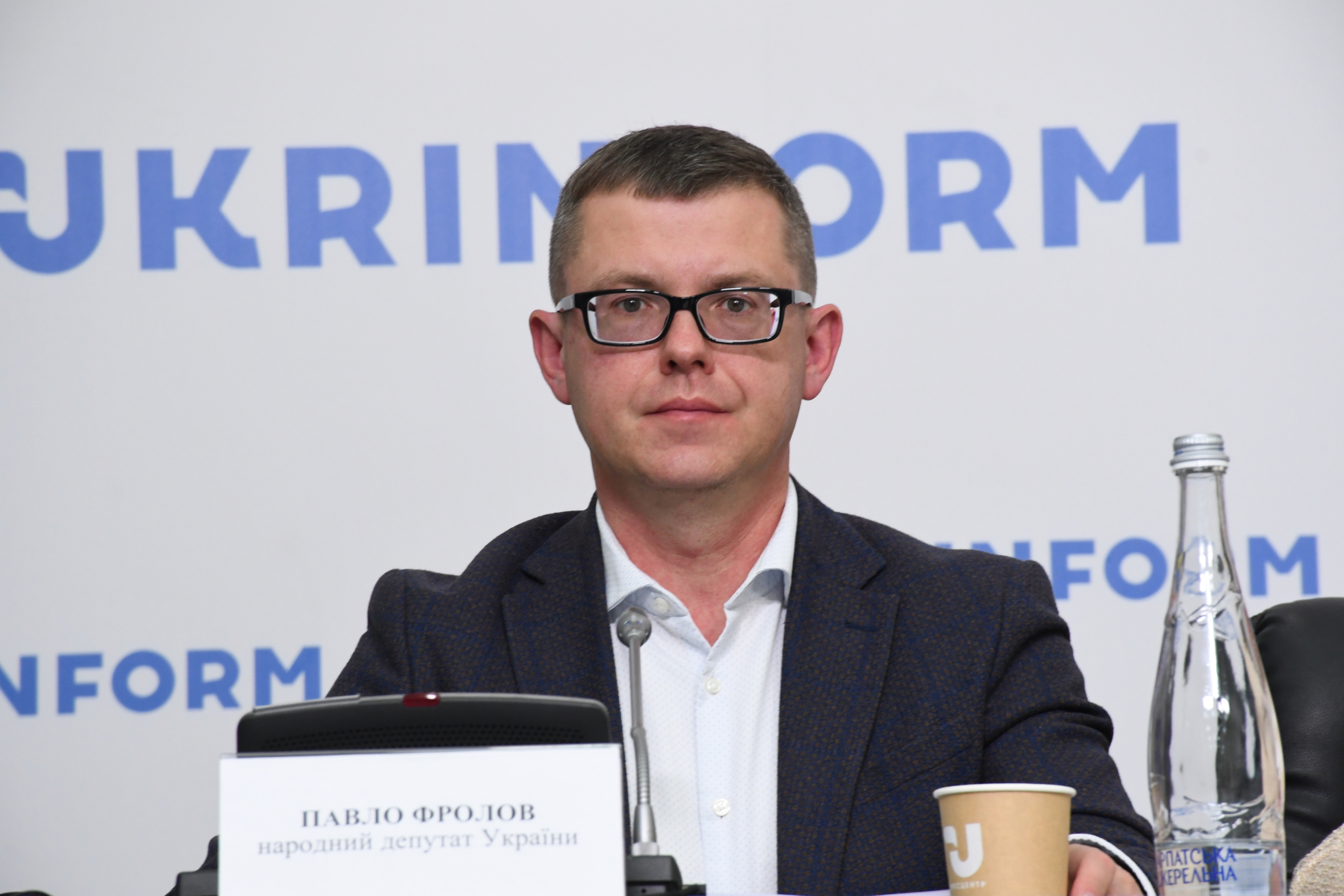 Pavlo Frolov
Pavlo FrolovRepresentatives of the civil society sector emphasised the importance of improving mechanisms for ensuring the rights of Ukrainian citizens affected by the war.
Advocacy Coordinator of the CF Right to Protection, Kseniia Hedz, highlighted the priorities that the state should work on, according to civil society. She emphasised that coordination between the state, the civil society sector and international organisations is one of the key factors for the success of the IDP policy.
“It is necessary to ensure coordination between all stakeholders, organise effective evacuation, communicate transparently with IDPs, and develop policies based on their needs. It is also important to create an inclusive strategy that takes into account the voices of the displaced persons themselves. IDPs must remain a priority at all levels. Recovery is about people, communities and our future,” emphasised Kseniia Hedz.
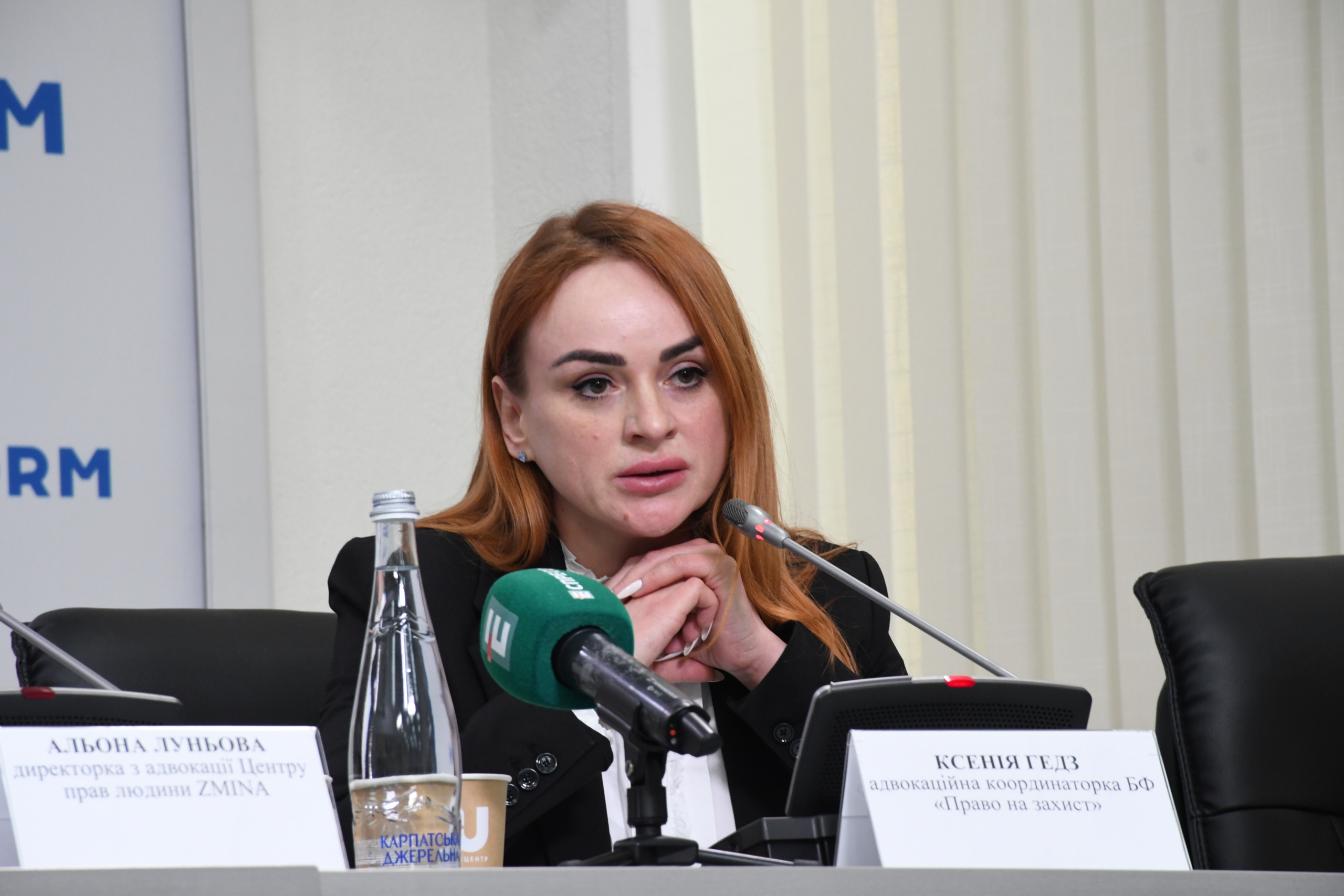 Ksenia Hedz
Ksenia HedzAlena Lunova, Advocacy Director of the Human Rights Centre ZMINA, highlighted issues of humanitarian aid and support for civilians remaining in the temporarily occupied territories, as well as the importance of monitoring and documenting human rights violations in these territories and informing the public.
“It is very important that the relevant ministry implements a more comprehensive policy to inform residents of the TOT and other categories of affected persons that certain powers regarding the reintegration of the occupied territories have been transferred to the Ministry for Development and that it is fully prepared to implement them,” Lunova noted.
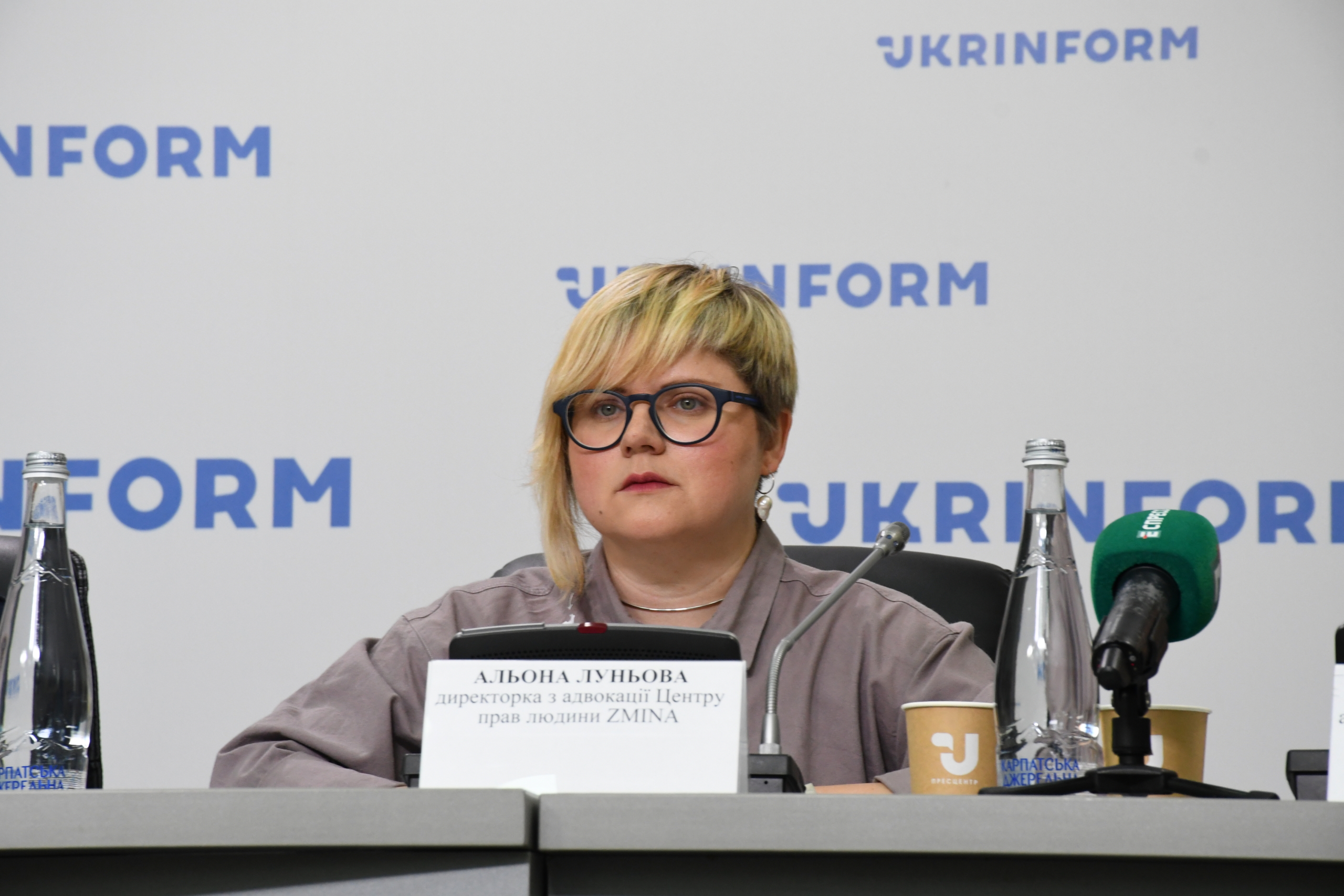 Alena Lunova
Alena LunovaShe stressed the importance of assessing the targeted aggressive policy of the Russian Federation in the TOT and understanding the mechanisms of its implementation. “We need to talk more about the people who remain in the temporarily occupied territories and ensure they have the conditions to leave safely. Particular attention should be paid to young people: it is important to develop policies that encourage and support their return to the territories controlled by Ukraine,” said Alena Lunova.
The Advocacy Director of ZMINA also stressed the importance of strengthening the role of the Ministry for Development in coordination and communication in support of IDPs and Ukrainians living in the TOT, including youth.
You can watch the recording of the broadcast here.
If you have found a spelling error, please, notify us by selecting that text and pressing Ctrl+Enter.















